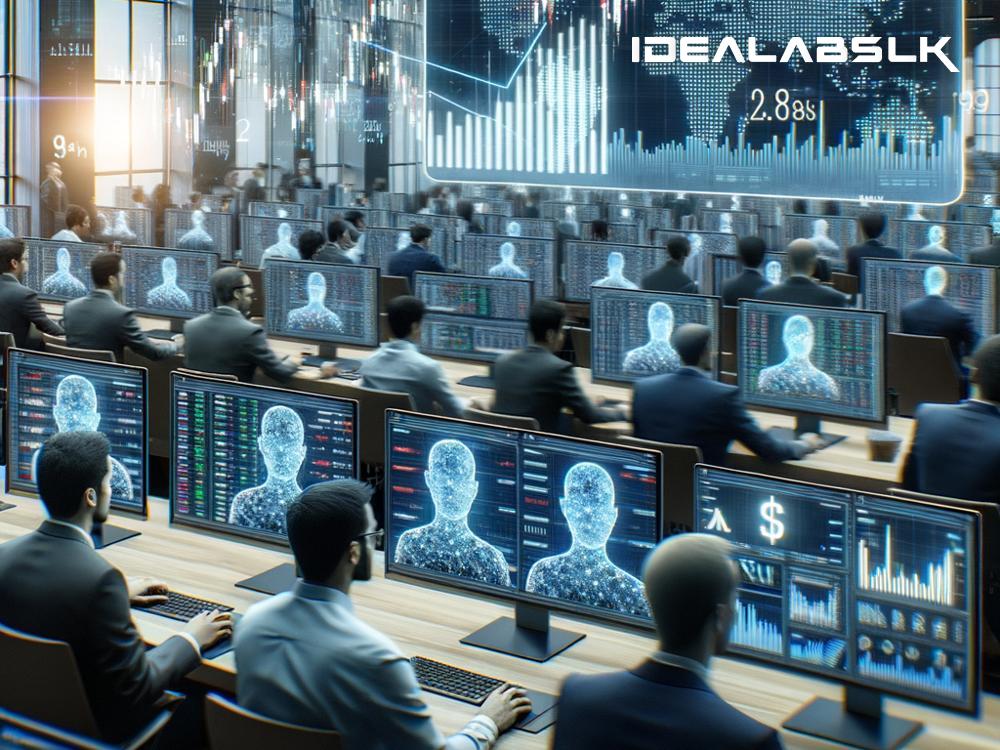AI in Trading: Revolutionizing the Financial Markets
In the bustling world of financial trading, a new powerhouse has emerged on the scene, poised to revolutionize how we approach strategy and execute trades. Artificial Intelligence (AI) technology is no longer confined to the realms of science fiction or limited to automating repetitive tasks. It's now at the forefront of trading, promising to enhance decision-making, optimize strategies, and improve outcomes for traders across the globe. This article dives into how AI is transforming the trading landscape, making it more efficient, less risky, and accessible to a broader audience.
Understanding AI in Trading
In its essence, AI involves creating computer systems that can perform tasks usually requiring human intelligence. This includes learning from data, identifying patterns, making decisions, and solving problems. In trading, these capabilities translate to analyzing vast amounts of market data, predicting price movements, and executing trades at optimal times. By rapidly processing information, AI can spot opportunities or risks that might elude the human eye, providing traders with a competitive edge.
Enhancing Trading Strategies
One of the most significant benefits of AI in trading is its potential to refine and enhance trading strategies. Traditional trading methods often rely on historical data and linear models to predict future market movements. However, markets are complex and influenced by countless dynamic factors. AI, with its ability to learn and adapt, can sift through this complexity to identify underlying patterns and correlations.
AI-powered models can analyze news articles, social media sentiment, economic indicators, and market data in real-time, adjusting strategies based on current market conditions. This level of analysis can uncover valuable insights and generate more accurate predictions, leading to better-informed trading decisions. As AI systems learn from new data and outcomes, they continually refine their predictions, making trading strategies more robust over time.
Optimizing Trade Execution
Another vital area where AI is making waves is in the execution of trades. Timing can be crucial in trading, and executing trades too early or too late can significantly impact profits. AI systems can monitor markets round-the-clock, react to changes instantly, and execute trades at precisely the right moment, something human traders can struggle with due to physical limitations and the need for sleep.
Furthermore, AI can manage several trades simultaneously across different markets, increasing efficiency and opportunities for profitability. By automating trade execution, traders can minimize the impact of human errors, emotional decision-making, and the potential for costly delays.
Reducing Risks and Enhancing Compliance
Trading inherently involves risk, but AI can help mitigate it through sophisticated risk management tools. AI systems can anticipate potential market downturns, identify volatile trading patterns, and adjust strategies to protect investments. By analyzing historical and real-time data, AI can provide early warnings of risks that might not be immediately apparent to human traders.
Moreover, in the heavily regulated world of trading, maintaining compliance is paramount. AI can monitor transactions in real-time for any irregularities or deviations from regulatory standards, ensuring that trading activities remain compliant. This not only helps avoid legal penalties but also builds trust with clients and stakeholders.
Making Trading Accessible
Perhaps one of the most exciting aspects of AI in trading is its potential to democratize the trading landscape. Traditionally, high-frequency trading and sophisticated analytics were the domain of institutional investors and financial experts. However, AI-driven trading platforms are increasingly becoming available to individual traders, providing them with tools and insights once reserved for the pros.
These platforms can guide less experienced traders, help them make informed decisions, and manage their risk, leveling the playing field in financial markets. As AI technology becomes more pervasive and user-friendly, trading could become more accessible to a broader audience, fostering inclusivity and diversity in the trading community.
Conclusion
AI is undoubtedly transforming the trading landscape, enhancing strategies, optimizing trade execution, reducing risks, and making trading more accessible. As technology continues to evolve, we can expect AI's role in trading to expand, opening up new opportunities and challenges. While AI cannot eliminate risks or guarantee profits, its ability to process and learn from vast amounts of data is changing the game. By embracing AI, traders can equip themselves with powerful tools to navigate the complex world of financial markets more effectively. As we stand on the brink of this new era, one thing is clear: AI in trading is not just the future; it's here to reshape our present strategies and execution methodologies.

